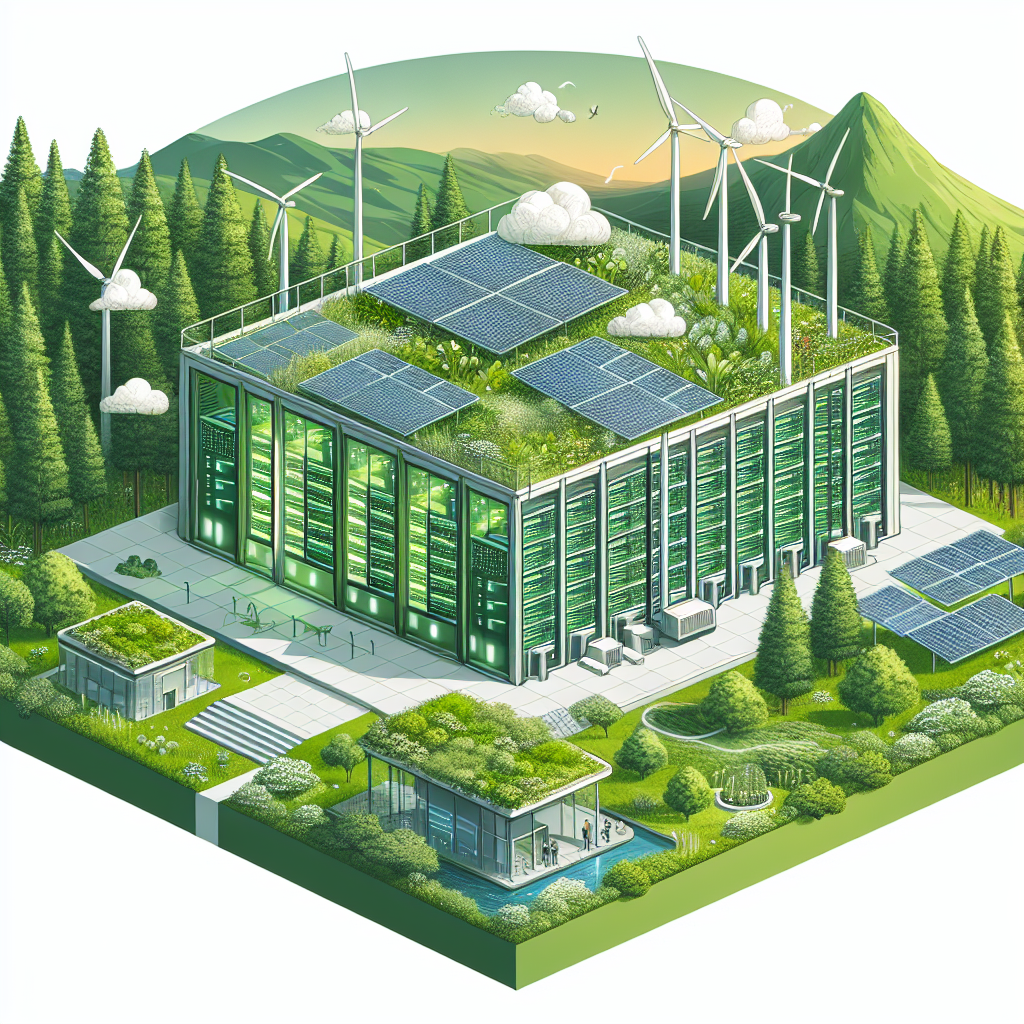Your cart is currently empty!
Eco-Friendly Data Centers: Implementing Sustainable Practices for a Better Future

In today’s digital age, data centers play a crucial role in storing and processing vast amounts of information. However, the increasing demand for data storage and processing power has led to significant energy consumption and carbon emissions. As a result, many companies are turning to eco-friendly data centers to reduce their environmental impact and promote sustainability.
Eco-friendly data centers are designed to minimize energy consumption and use renewable energy sources to power their operations. These data centers implement sustainable practices such as energy-efficient cooling systems, virtualization technology, and recycled materials in their construction. By adopting these practices, companies can reduce their carbon footprint and contribute to a greener future.
One of the key ways that eco-friendly data centers reduce energy consumption is through the use of energy-efficient cooling systems. Traditional data centers rely on air conditioning units to keep servers cool, which can be extremely energy-intensive. Eco-friendly data centers use innovative cooling technologies such as water-based cooling systems or free cooling, which utilize natural cooling methods like outside air or water to regulate server temperatures. By reducing the energy needed for cooling, these data centers can significantly lower their energy consumption and carbon emissions.
Another important aspect of eco-friendly data centers is the use of virtualization technology. Virtualization allows companies to consolidate multiple servers onto a single physical server, reducing the total number of servers needed and the energy required to power them. By optimizing server utilization through virtualization, companies can maximize their computing power while minimizing energy consumption and hardware waste.
In addition to energy-efficient cooling systems and virtualization technology, eco-friendly data centers also prioritize the use of renewable energy sources. Many eco-friendly data centers rely on solar, wind, or hydroelectric power to meet their energy needs, reducing their reliance on fossil fuels and lowering their carbon footprint. By harnessing renewable energy sources, these data centers can operate more sustainably and contribute to the global transition to a low-carbon economy.
Furthermore, eco-friendly data centers also incorporate recycled materials in their construction to reduce waste and promote circular economy principles. By using recycled materials in their server racks, flooring, and other components, these data centers can minimize their environmental impact and support the recycling industry.
In conclusion, eco-friendly data centers are leading the way in implementing sustainable practices to reduce energy consumption and promote environmental stewardship. By adopting energy-efficient cooling systems, virtualization technology, renewable energy sources, and recycled materials, these data centers are setting a new standard for sustainability in the tech industry. As the demand for data storage and processing continues to grow, it is essential for companies to prioritize eco-friendly practices to create a better future for our planet.

Leave a Reply